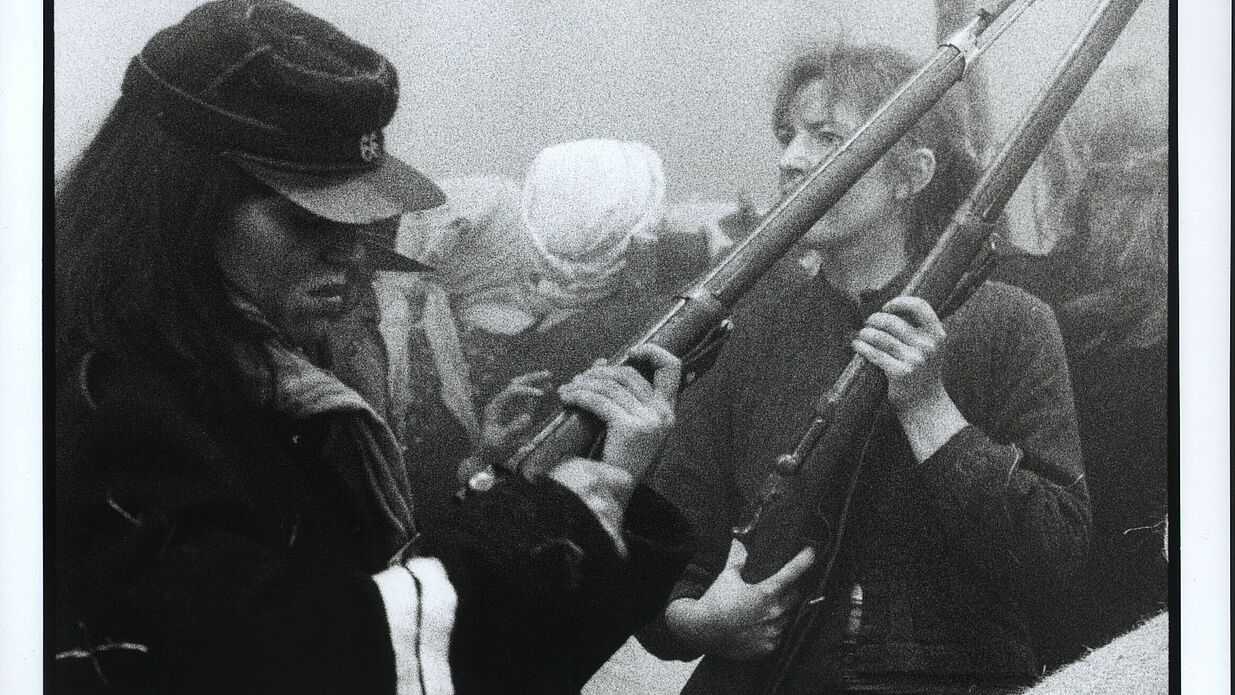This is just the Beginning
Karl Marx and Cinema

La commune (FR 2000)
The delusion of the masses or a means of enlightenment par excellence? Since its beginnings, film has been the subject of ideological disputes and appropriations like hardly any other medium. Left-wing struggles and theories in particular play a specific role in this dispute about and in the cinema - be it as a consumable commodity in the cultural pessimistic reflections of the Frankfurt School or as a site of lively resistance in feminist and postcolonial appropriations.
The film series accompanying the exhibition Karl Marx and Capitalism is organised by Fiona Berg and Sophie Holzberger thus does not focus on Karl Marx as a historical figure, but on the profound cinematic receptions of his theoretical reflections. The diverse and conflicting interpretations that Marx's work has provoked are reflected in the diversity of the films, which range from comedies to agit-prop, from film-historical reflection to ethnographic documentary.
In addition to prominent examples of Soviet revolutionary film, Marx's theory found an extensive new reception in the global awakening of political movements in the 1960s, for example in the anti-colonial struggles in Latin America, the student revolts and workers' strikes in Europe and the USA, as well as the global feminist movements. The problems that arise from a Eurocentric perspective and the lines of conflict and power asymmetries that are perpetuated within the history of Marx's reception are a fixed point in the series.
The films are united in their self-understanding as political action. Many of them insist that marginalised subjects should re/present and criticise themselves and their living conditions. This means that the production conditions of the films are also the setting for political debate. In addition to access to equipment and financing, the following questions are central: Who guides the camera? Who is looked at by it? Who is being listened to?
Other films approach their subjects with an external gaze. In some cases, this is reflected in the films themselves, for example as a shared view of a screen, or is subsequently expressed in a critique of ethnographic positioning or the documentary process. The collective viewing experiences of the circulation stories, such as Medvedkin's Cinema Train, also set the rigid dichotomy of inside and outside, of reception and production, in motion.
The films in the series show various forms of political interventions in existing and historical labour and living conditions, forming surprising alliances in their basic assumptions about spectatorship and the function of film. The film programme is permeated by the confidence that film can not only analyse and criticise social grievances, but also change them. The hope for change is not only condensed in the virulent image of demonstrating masses, but also in the trust in the power of theory in the form of text panels. The collective question of the possibilities of a good life is one that continues in film in many forms to this day. The programme represents only one of possible beginnings.